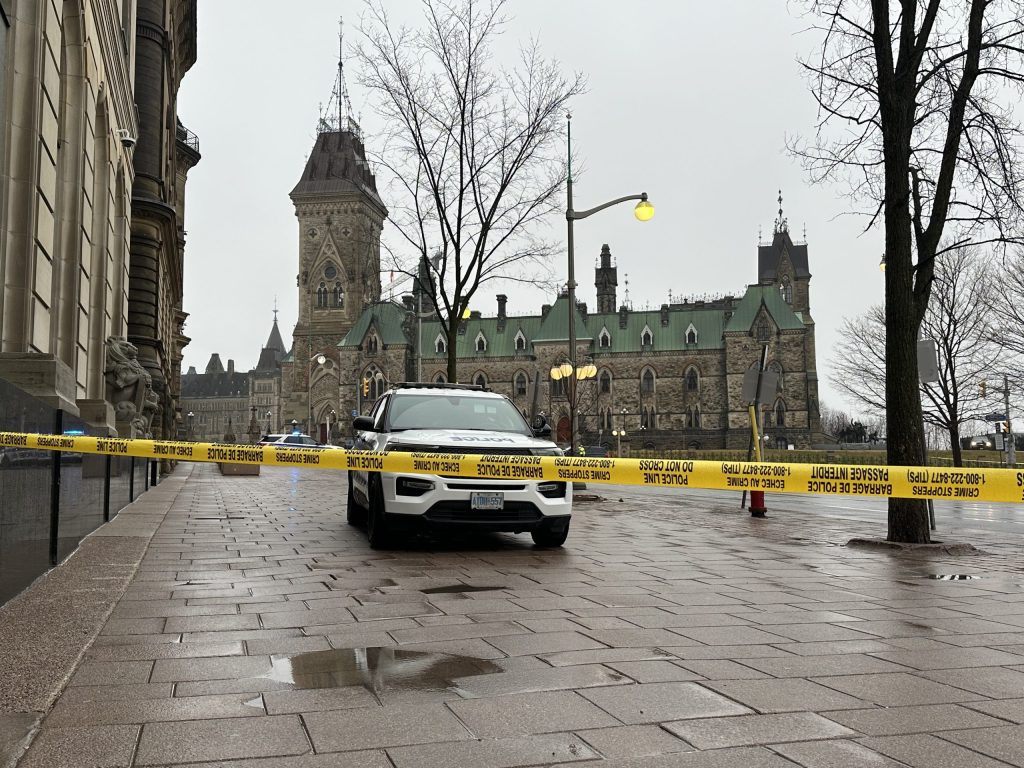Montreal Climate Summit: divesting from fossil fuels and planting trees
Posted May 7, 2024 8:58 am.
Last Updated May 7, 2024 6:48 pm.
Montreal’s joint fund of the municipal employees’ retirement plan announced its intention to withdraw its investments from fossil fuels and plant 200,000 trees in the east of the city.
These two announcements took place on Tuesday at the Montreal Climate Summit, attended by the mayor of Montreal, the Environment Ministers for Canada and Quebec, Steven Guilbeault and Benoit Charette.
“When there’s the political will and when you work with the right person, you can actually tackle on those important issues which are to decarbonize,” said Mayor Valérie Plante at a press scrum at the Montreal Climate Summit.
More than 900 people from the business, philanthropic, union, political, community, environmental and civil society sectors are expected at the Grand Quai du Port on Tuesday and Wednesday, during the event which is in its third edition.
“I am an environmentalist,” said Nathanael Fumbele, a volunteer for the Montreal Climate Summit. “I want to contribute for the climate, to see the alternatives that can help our planet to remain fit because of the situation we are currently facing.”
On Monday, Plante and mayors of the greater Montreal area met with Quebec Transport Minister Genevieve Guilbault to discuss their public transit agencies’ over half a billion dollar deficit.
“Yesterday was more about opening up to how we want to work together in the next coming weeks and months, I was really happy to hear the minister saying that she wants to come up with a solution before summer,” said Plante. “That being said, we will have to have also open discussion about how do we solve this huge problem that didn’t start yesterday or not even with the COVID.
“It started way before that where municipalities and government have been putting efforts and consultation on how to find new ways to finance public transport. Ultimately this is a collective hope and objective and I believe it is to have a strong vision that will be shared with by cities, the government and the transport societies.”
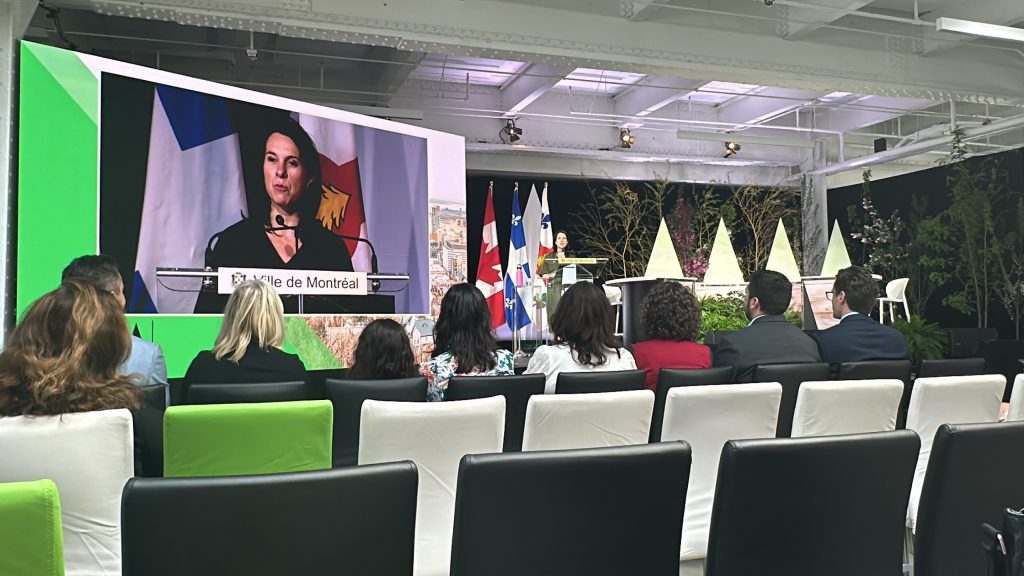
Divestment from fossil fuels
Tuesday morning, Plante announced that the City of Montreal is entering into a collaboration with the Caisse Commune of retirement plans for employees in order to repatriate to the city almost all of the management of its investments, valued at $10 billion.
Currently, only 23 per cent of these assets are managed locally, according to the city.
“We’re continuing to demonstrate to Montrealers how strongly we believe that we all can make a difference,” said Plante.
This collaboration aims, ultimately, to divest from fossil fuels and “benefit the entire financial ecosystem of Montreal,” according to the Plante administration.
“This commitment is a first concrete step and sends a strong signal to other cities, governments and public pension funds to strengthen the green economy,” declared Mayor Plante.
The president of the C-40, which brings together major cities around the world committed to the ecological transition, welcomed the initiative.
“Montreal joins other pioneering C40 cities that are using all the tools at their disposal to ensure that funding goes to the green economy and away from industries that pollute our planet and harm our communities,” said Mark Watt in a press release.
The mayor of Montreal is vice-president of the C40 network.
Quebec gives financial assistance to reduce GHG
The Quebec government on Tuesday morning announced financial assistance of nearly $10 million to Énergir chaleur et climatisation urbaines (ÉCCU) for a heat recovery and reclamation project that the CAQ believes will reduce greenhouse gas (GHG) emissions by 10,000 tonnes in downtown Montreal.
The Energir subsidiary will install two electric boilers and a heat recovery and reclamation system.
ÉCCU operates Montreal’s thermal power plant, providing heating and cooling to more than a third of downtown Montreal.
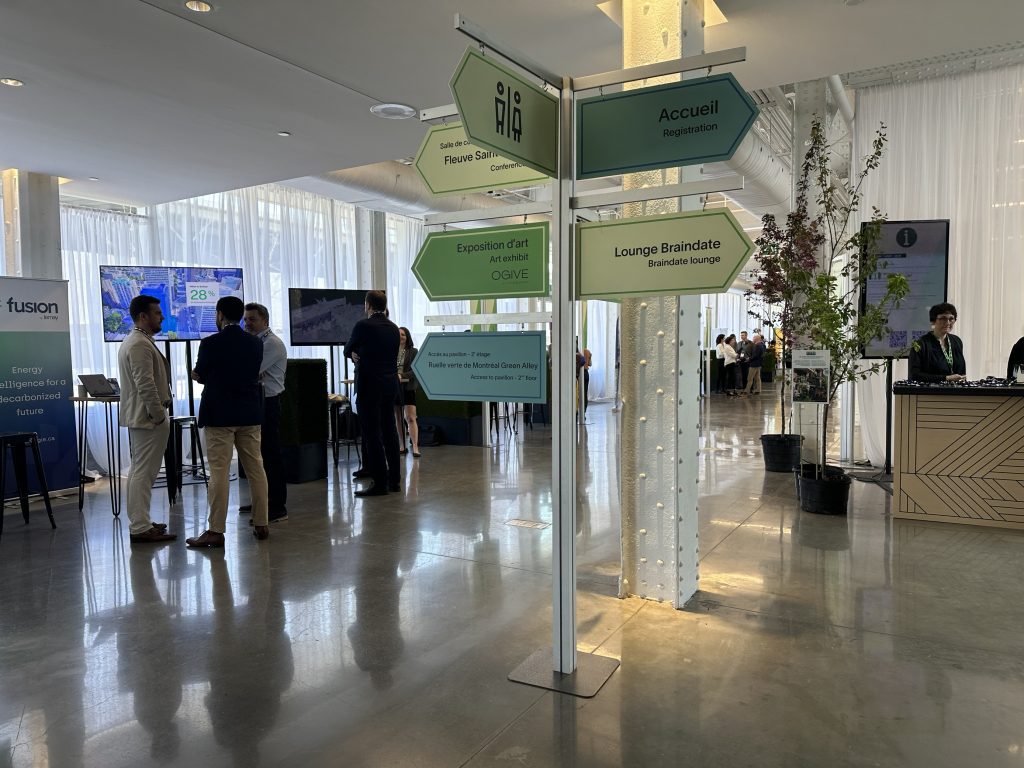

In a press release, the office of the Quebec Minister of the Environment indicated that the installation of “two electric boilers producing hot water and steam from renewable energy sources will enable the company to optimize its energy consumption”.
According to the government, nearly 2 million square meters of downtown buildings are supplied by the network.
“By retaining its natural gas facilities, ÉCCU will be able to offset the demand for hydroelectricity during peak periods by maintaining the use of its natural gas operations,” reads the press release.
More than 200,000 trees to be planted in eastern Montreal
Ottawa and Montreal also announced the planting of 230,000 trees and 57,000 shrubs in the east of the city. This project will “strengthen existing natural infrastructure in this sector and provide access to natural environments,” according to a press release from the federal government.
The press release highlights that the federal government could “contribute up to a maximum of $27,710,192 in this project under the Disaster Mitigation and Adaptation Fund (FAAC)” and that the contribution of the City of Montreal “could amount to $40,000,000, or 60 per cent of the total value of the project.”
According to the federal government, investing in these adaptation measures “will have significant economic benefits later,” because “each dollar invested in adaptation and preparedness for climate-related disasters can return between $13 and $15 in profits.”
The Montreal Climate Summit is organized by Partenariat Climat Montréal, in collaboration with the Ville de Montréal and other partners.
The aim of the summit is “to bring solutions to light, measure collective progress and share lessons learned and pitfalls, with a view to accelerating Montreal’s climate transition.”
” I think it should be more often maybe, because I think to help people change their way of thinking, we have to talk, communicate again and again and again,” said Montreal Climate Summit participant, Lucie Grevin.
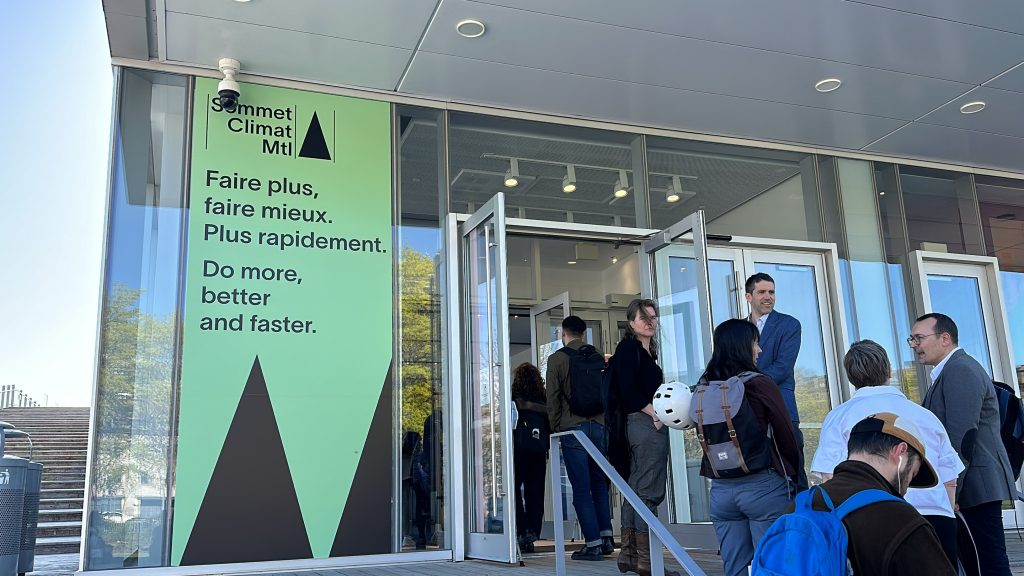
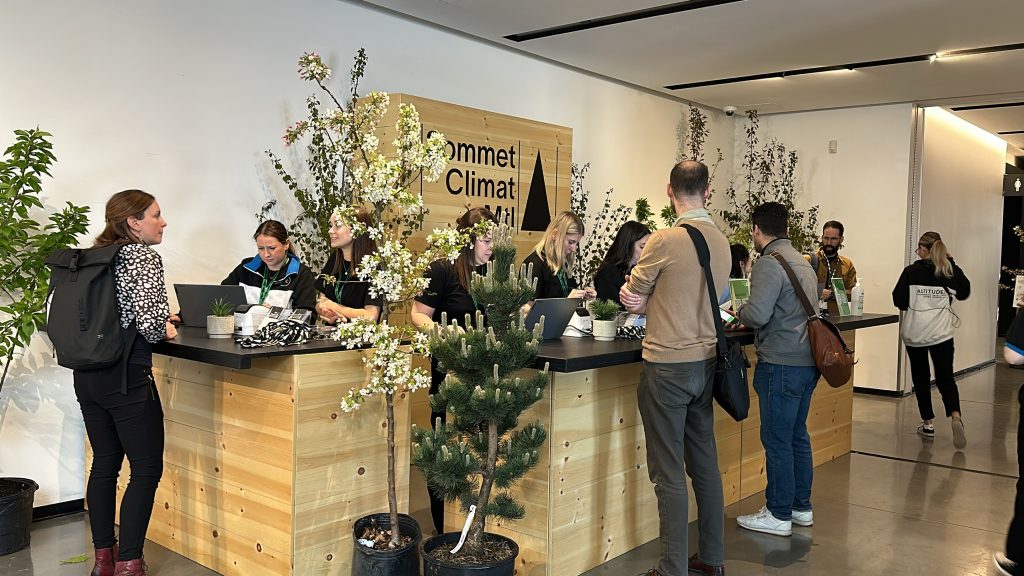
–This report by La Presse Canadienne was translated by CityNews

